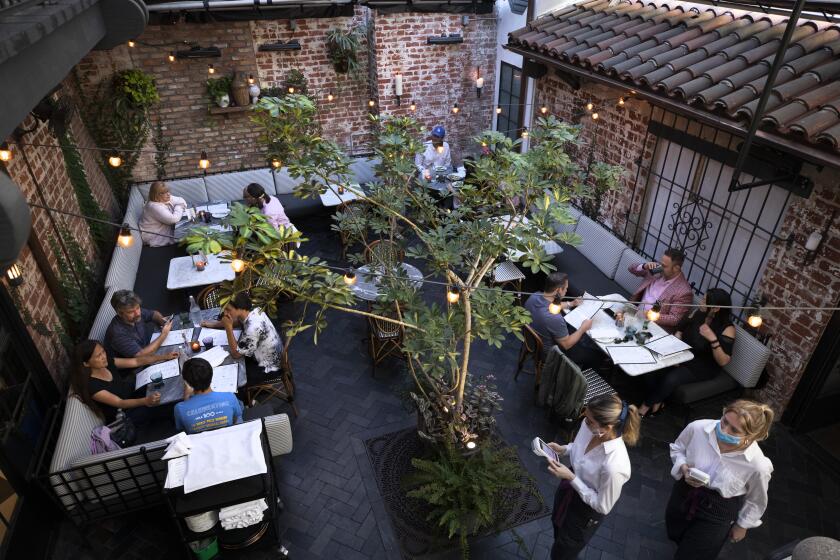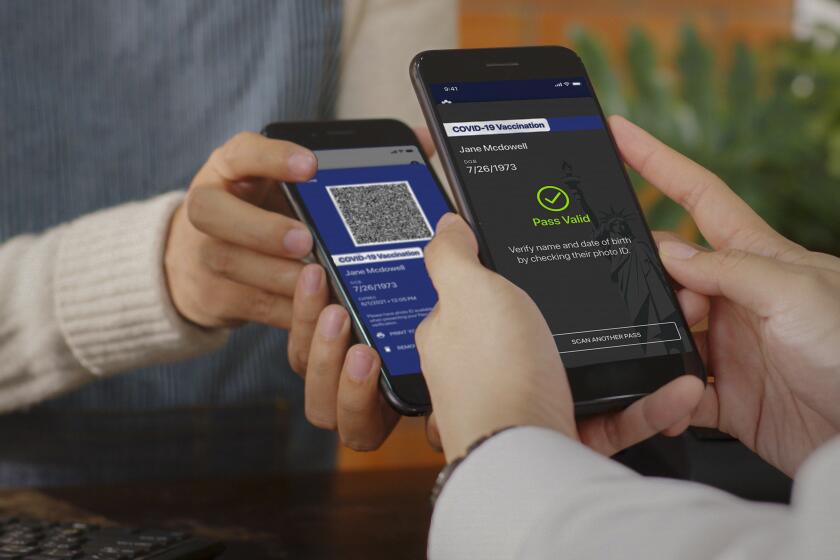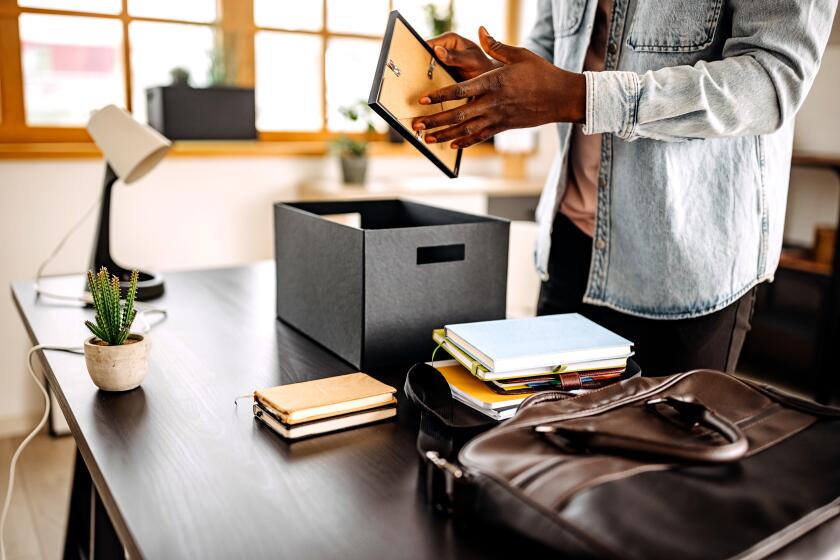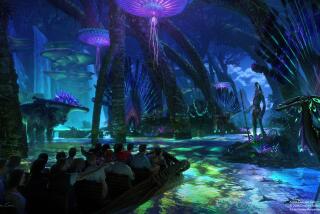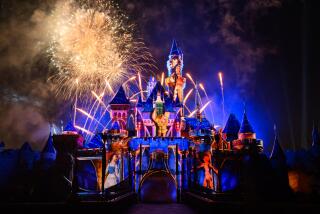Disneyland reveals which COVID-era changes will stay, which will go
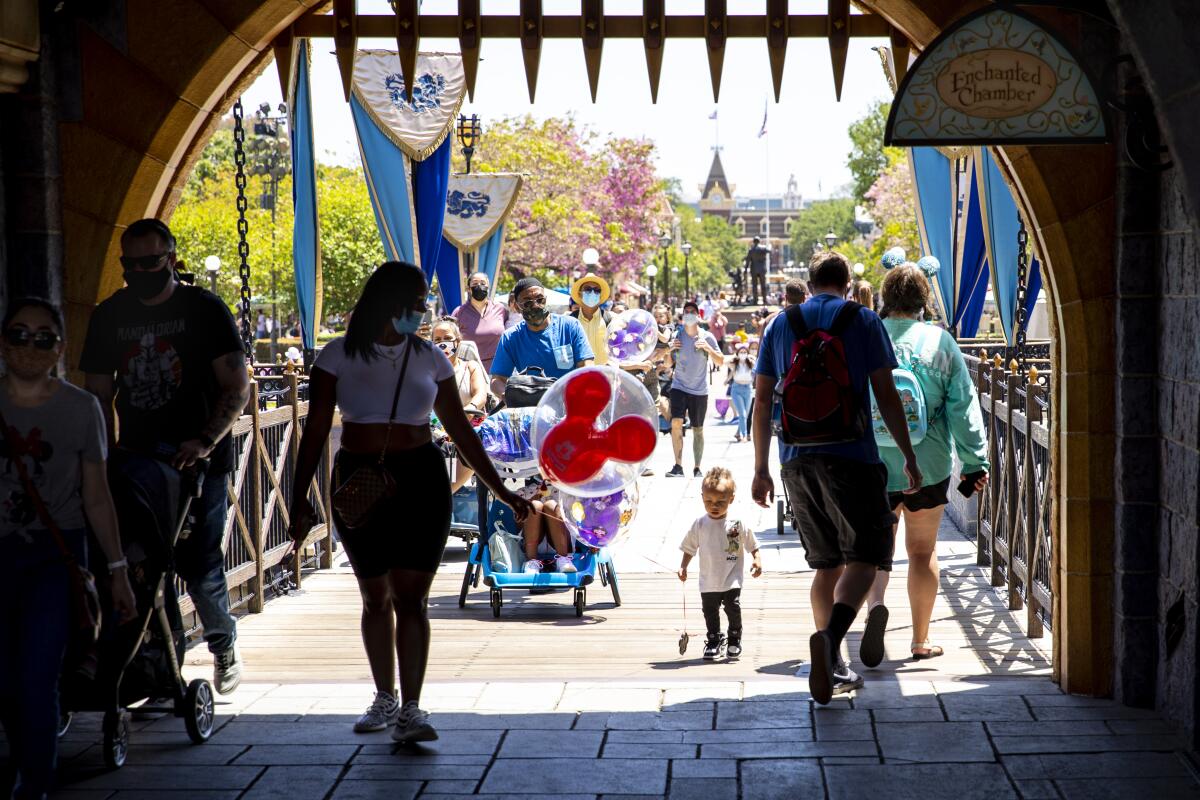
- Share via
The pre-pandemic version of Disneyland might be gone forever.
California lifted most of its coronavirus safety restrictions this week, and the parks at the Disneyland Resort in Anaheim are continuing to reopen in phases, but a handful of the COVID-era changes are going to stick.
For the record:
1:07 p.m. June 18, 2021An earlier version of this story said that during busy times, visitors to Disney California Adventure used a virtual queueing system to enter the Avengers Campus. That is no longer the case. Visitors can now enter the campus at any time and use the virtual queueing system only to ride the campus’ Web Slingers attraction.
“I don’t want to say we are going to go back to the way it was,” Josh D’Amaro, chairman of Disney Parks, Experiences and Products, said Thursday about managing the parks. “I want to be really smart in the way we do this.”
With the government-imposed attendance caps and physical distance requirements gone, the Disneyland and Disney California Adventure parks are expected to relaunch several rides, musical acts and nighttime extravaganzas over the next few weeks and other attractions later this summer.
What workers want from customers: Don’t be a jerk, say if you’re vaccinated, and please keep masking
Now that California has eased its COVID rules, many customers at stores, restaurants and hotels want things to be normal. Here’s what workers think.
In some ways, the parks will never return to pre-pandemic operations. Disney executives say the 15-month closure helped them rethink how best to manage one of the biggest headaches at the resort: the enormous throngs of Disney-loving visitors.
That includes keeping in place a reservation system that was adopted to manage visitor numbers under the state-imposed capacity limits and the continued use of a virtual queuing system that was designed to give all parkgoers a shot at visiting the most popular attractions.
The annual pass program — which was canceled in January and which experts blamed for some of the parks’ crowding problems — will be replaced with a membership program that “will reflect the behavior of our superfans,” D’Amaro said, adding that more details will be released “relatively soon.”
Disneyland and Disney California Adventure closed in March 2020 because of the pandemic and reopened April 30 of this year under a slew of COVID-19 restrictions. When the state lifted most of those restrictions Tuesday, the parks largely followed suit. Parkgoers will no longer have their temperature taken upon entering the property.
Parkgoers who have been fully vaccinated no longer need to wear a mask in the parks. And Disney won’t require proof of vaccination — visitors will just have to attest they are in compliance.
The closure came less than a year after Disneyland opened its $1-billion Star Wars: Galaxy’s Edge, the largest expansion in the park’s history. The expansion’s second and most anticipated ride, Star Wars: Rise of the Resistance, opened in January 2020 only to be shut by the pandemic two months later.
The federal government isn’t willing to make a digital pass or app that attests to a person’s vaccination status. Several companies are trying to fill the void.
Before the closure, the resort employed about 32,000 workers. D’Amaro said the resort has about 15,000 employees back at work, and he expects to hire hundreds more over the next few months. It remains unclear when or whether the resort will return to its pre-pandemic staffing levels.
Since the parks reopened, attractions have been coming online in phases. The new land that was scheduled to open last summer — Avengers Campus in Disney California Adventure — opened June 4, drawing huge attendance in the first few weeks. The Disneyland Band is scheduled to return Friday; other musical acts, such as the Five and Dime jazz quintet, are expected to return later this month.
Disneyland’s Buzz Lightyear Astro Blasters and Storybook Land Canal Boats are set to reopen next week.
The park’s nighttime fireworks shows will return July 4. Parades and opportunities to meet costumed characters are expected to come back at an unspecified later date.
The Disneyland Monorail and the Finding Nemo Submarine Voyage ride remain closed, with no reopening date announced.
Pent-up demand, pandemic savings, back-to-office mandates -- experts say it will all add up to a historic wave of people leaving their jobs.
Although many attractions are still offline, the parks has welcomed pre-pandemic-size crowds in the days since the state restrictions lifted. Wait times for the most popular rides, such as the Indiana Jones Adventure, Star Wars: Rise of the Resistance and Space Mountain, climbed to more than 40 minutes Thursday afternoon.
D’Amaro attributes the recent crowd sizes to the pent-up demand of Disney fans who have been away for more than a year. “The yearning for the Disney experience has grown stronger over the pandemic,” he said.
One way to manage the returning crowds, he said will be to continue requiring that ticket holders also book a reservation for the day they want to use their tickets. Both parks are fully booked almost every day for the next two weeks, according to the resort’s reservation calendar.
A virtual queuing system that is managed through the Disneyland app was introduced in 2019 to manage the crowds at Star Wars: Galaxy’s Edge. A similar queuing system is being used for the Web Slingers: A Spider-Man Adventure ride at Disney California Adventure’s Avengers Campus. For some weeks, the park used the ride’s queuing system to help regulate access to the campus as a whole — a measure to prevent crowding — but now park visitors can stroll into the campus at will.
Despite social media posts from park visitors complaining about not getting access to the superhero campus in the first few days after it opened, D’Amaro said the virtual queuing system was a “solid tool” that ensured that most parkgoers were able to visit the new campus.
“I feel like we have done a really nice job of setting up for this next era of theme park experience,” he said.
More to Read
Inside the business of entertainment
The Wide Shot brings you news, analysis and insights on everything from streaming wars to production — and what it all means for the future.
You may occasionally receive promotional content from the Los Angeles Times.
